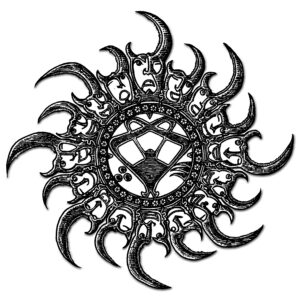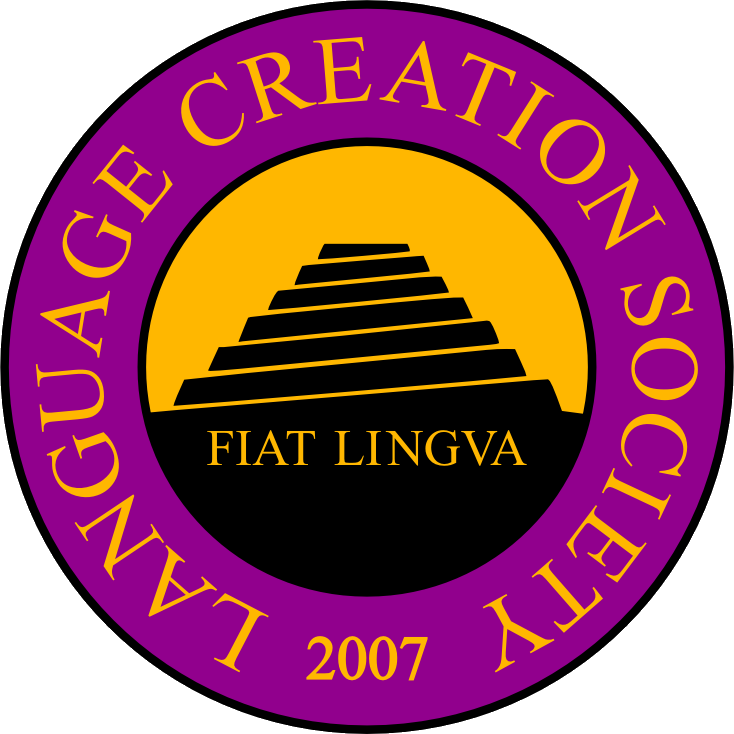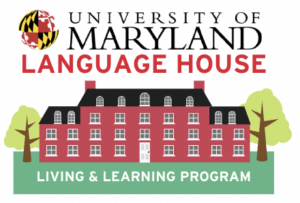The 11th Language Creation Conference was held on April 11–13, 2025, at the University of Maryland College Park Language Science Center, with local hosts John H. G. Scott and Caitlin Eaves.
Please see the resources page for important international travel requirements, detailed resources, and safety information.
Please email lcc@conlang.org if you have any questions, feedback, requests, etc.
Updates
- 2025-04-21: Added attendees list
- 2025-03-23: Added LCC12 Copenhagen selection
- 2025-03-04: Added LCC11 venue photos. Closed preferences part of registration.
- 2025-02-26: Registration and presentations are now up!
- 2025-02-07: Added 33″ measurement of exterior door to accessibility section on resources page. Review needs filled.
- 2025-01-30: Added maps to the resources page. Presentations CFP now closed.
- 2025-01-27: Added hotel info to resources page; added lcc@ email address; clarified streaming & remote Q&A.
- 2025-01-14: Relay signup is now closed.
Registration
Registration for LCC11 is closed.
Presentations
See the list of presentations.
Format
LCC11 will be a hybrid conference. Both in-person and remote presentations are welcomed. As always, all presentations will be live streamed and recorded on YT @FiatLingua, with remote Q&A relayed by a moderator.
Some social events will be in-person only, some online only. Please join the LCS Discord, conlang.org/discord, to participate in the online components.
Photos of the LCC11 venue are available here.
LCC12 will be in Copenhagen, July 10–12 2026
LCC12 will be held in Copenhagen, Denmark on July 10–12, 2026. The call for LCC12 presentations, and LCC13 hosts, will likely go up shortly after LCC11.
You can read more about LCC11 & LCC12 selection reasons and future plans here.
Rainbow conlang flag proposals
If you would like to propose a rainbow conlang flag design (very broadly interpreted, see link for details), please do so by March 31.
Donors
We thank the following LCC supporting donors:
- Patron
- Alex Fink
- Michael Mabbott
- Tim Smith
- 2 anonymous donors
- Sponsor
- Conor Stuart-Roe
- Danielle
- 4 anonymous donors
- Supporter
- Booster
- Randall Holmes
- Vanitas
- 3 anonymous donors
- Fan
- Brian Bourque
- 8 anonymous donors
Institutional support
LCC11 is funded in part by the generous support of:

Riddlesbrood Touring Theater Company
Attendees
Thanks to all of our volunteers, including the following who opted in to be publicly listed:
- Carl Avlund
- Gail Caudrelier
- Owen Fitzpatrick
- pib (New Zealand)
Attendees who opted in to be publicly listed:
- Alexis Ada Adamonis
- Axeton Essig
- Azalie O’Brien
- Baptiste Faussat (France)
- Biblaridion
- Brian Albert
- Carl Miller Jr. (Daytona Beach, Florida)
- Dennis Paul Himes
- Dillon Hartwig
- Elya Brown
- Grady Logelin
- iloivar
- Jamin Johnson (Nova Scotia, Canada)
- Jan van Steenbergen (the Netherlands)
- Jaye Nichols
- Jesse Friedman
- John A. Prado
- Josh Logelin
- Kaethonry
- Kaleissin
- Kate Brubaker
- Khizzy Neutron
- Kyle (Illinois)
- Lili McBride
- Logan R. Kearsley
- Margaret Ransdell-Green
- +merlan #flirora
- Michael M. Goessler
- Michael Nichols
- Milo O.Q.
- Owen Henry
- Riddlesbrood Touring Theater Company
- Robin Townsend
- Sai
- la .samflir.
- Tim Smith
- Tristan A (Dayton, Ohio)
Total counts as of April 21:
| Total | In person | Online | Rate |
|---|---|---|---|
| 137 | 88 | 49 | standard |
| 10 | 7 | 3 | reduced (need) |
| 18 | 4 | 14 | free (need) |
| 20 | 17 | 3 | free (invited/volunteer) |
| Total | In person | Online | Country | State/Province |
|---|---|---|---|---|
| 187 | 117 | 70 | (total, 16 countries) | |
| 1 | 1 | Belgium | ||
| 1 | 1 | Canada | Alberta | |
| 2 | 2 | British Columbia | ||
| 1 | 1 | Nova Scotia | ||
| 4 | 1 | 3 | (total) | |
| 1 | 1 | Colombia | ||
| 1 | 1 | Denmark | ||
| 1 | 1 | Finland | ||
| 4 | 2 | 2 | France | |
| 2 | 2 | Germany | ||
| 1 | 1 | Jamaica | ||
| 3 | 1 | 2 | Japan | |
| 1 | 1 | New Zealand | ||
| 1 | 1 | Netherlands | ||
| 1 | 1 | Norway | ||
| 1 | 1 | Russia | ||
| 2 | 2 | Turkey | ||
| 10 | 1 | 9 | UK | England |
| 5 | 1 | 4 | Scotland | |
| 15 | 2 | 13 | (total) | |
| 2 | 2 | USA | Alaska | |
| 2 | 2 | Arizona | ||
| 10 | 3 | 7 | California | |
| 2 | 1 | 1 | Connecticut | |
| 6 | 6 | D.C. | ||
| 4 | 4 | Florida | ||
| 3 | 2 | 1 | Georgia | |
| 1 | 1 | Hawai’i | ||
| 2 | 1 | 1 | Idaho | |
| 2 | 1 | 1 | Illinois | |
| 5 | 5 | Indiana | ||
| 1 | 1 | Kentucky | ||
| 22 | 21 | 1 | Maryland | |
| 3 | 3 | Massachusetts | ||
| 3 | 2 | 1 | Michigan | |
| 2 | 1 | 1 | Minnesota | |
| 5 | 5 | New Jersey | ||
| 11 | 7 | 4 | New York | |
| 2 | 2 | North Carolina | ||
| 12 | 12 | Ohio | ||
| 1 | 1 | Oregon | ||
| 12 | 12 | Pennsylvania | ||
| 2 | 2 | Rhode Island | ||
| 4 | 4 | Tennessee | ||
| 2 | 1 | 1 | Utah | |
| 1 | 1 | Vermont | ||
| 4 | 4 | Virginia | ||
| 5 | 4 | 1 | Washington | |
| 1 | 1 | West Virginia | ||
| 3 | 3 | Wisconsin | ||
| 136 | 103 | 33 | (total, 31 states) | |
| 12 | 7 | 5 | unspecified | |
General information
About the LCC
The Language Creation Conference is an international conference discussing issues related to the craft of language creation, or “conlanging”. It includes both fairly technical linguistic discussions as well as more artistic, sociological, or philosophical ones; examples of craft in action; voices from many parts of the conlanging community; and people from all over the world. The conference is open to the public. Preregistration requested. Lunch, snacks, and opportunities to socialize with fellow conlangers will be provided. All proceeds go to the LCS.
What is language creation?
Language creation (or “conlanging” — “conlang” is short for “constructed language”) is the process of inventing and (usually) describing a new language. Though the extent to which a language is created varies, creators might include sound systems, grammars, and writing systems for their languages. Some creators are also interested in cosmogenesis: the creation of cultures and worlds in which their languages are used.
What’s the point?
People create constructed languages for a number of reasons. Artistic languages are often included in fictional works: for example, Tolkien’s Quenya in The Lord of the Rings or Klingon in Star Trek. International auxiliary languages (auxlangs) are intended for communication between people of different native languages, usually to prevent one being elevated over others or to making learning easier; some famous examples are Esperanto, Ido, and Interlingua. Logical and philosophical languages are used to test linguistic (and other) theories; Loglan and Lojban are well-known examples of the former, and Suzette Haden Elgin’s Láadan is an example of the latter — which she incorporated into the Native Tongue series of novels.
Press
We welcome members of the press and will assist you in researching a story about conlangs or conlangers. Press registration is the same as for any other attendee, but we ask that you identify yourself publicly and briefly let the audience know your affiliation(s) and what you are working on.
Code of Conduct
The LCS expects all attendees to abide by the LCS Code of Conduct.



